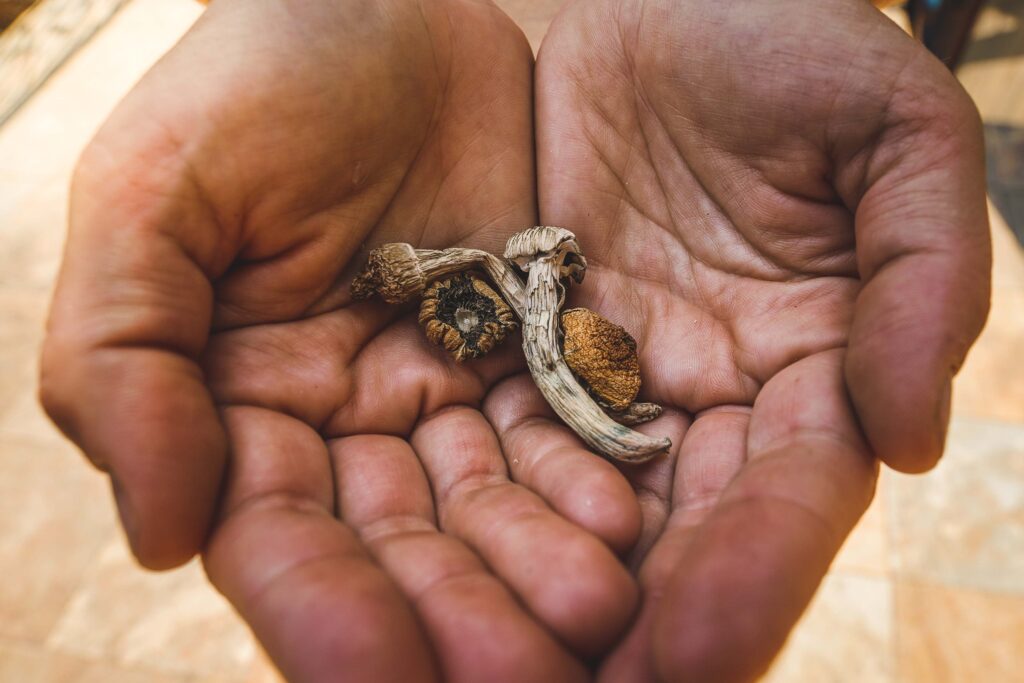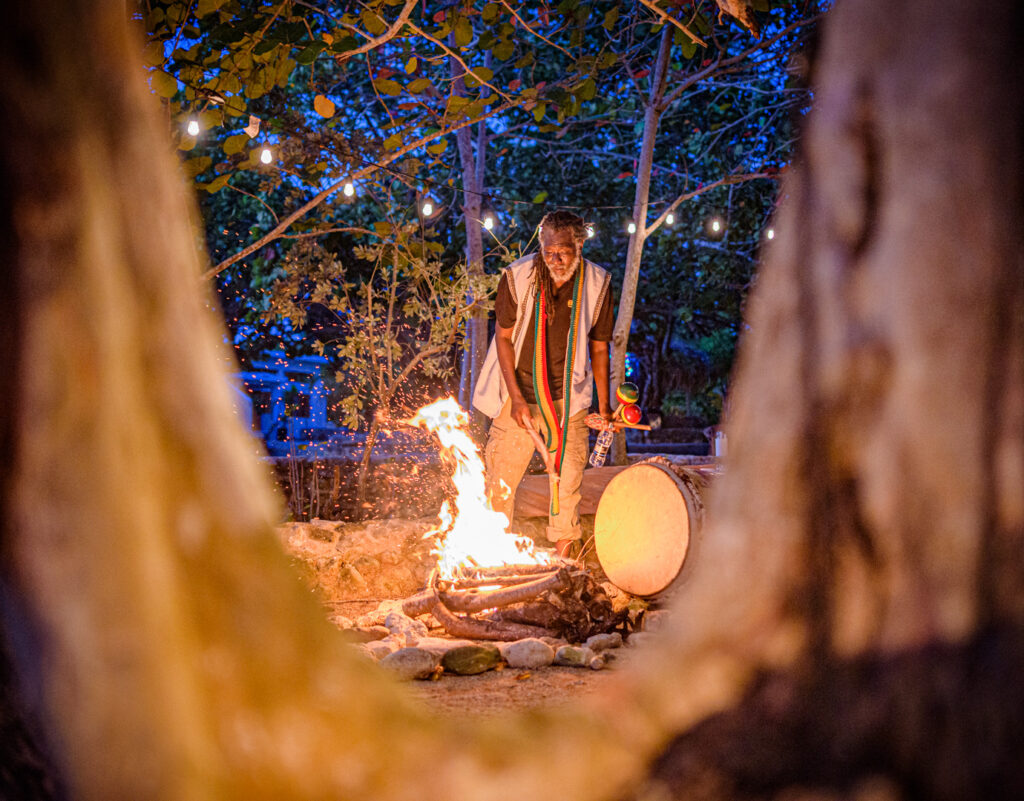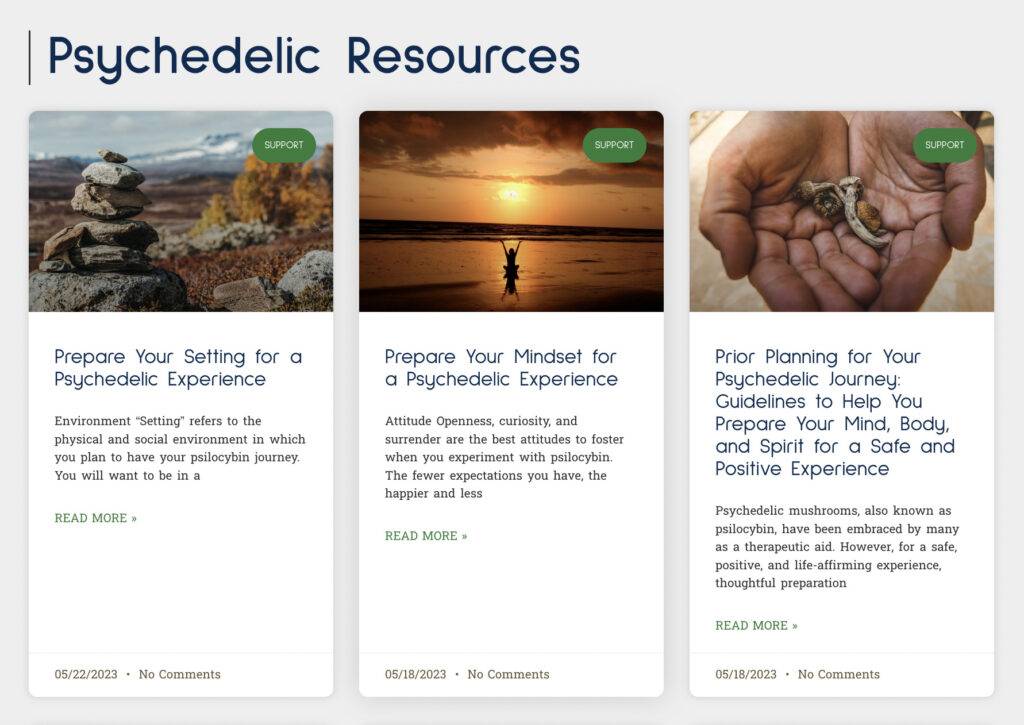If you are considering attending a retreat or working with a facilitator, guide, or tripsitter, here are some important points to consider and discuss. Don’t be afraid to ask questions. Feeling safe and comfortable during the experience is key to getting the most out of your session.
Do they offer preparation or integration sessions?
Facilitators who discuss and emphasize the importance of preparation and integration are more likely to understand the holistic nature and long arc of psychedelic work. Preparation sessions help you build trust with your guide, which can lead to more effective ceremonies. Integration helps you feel held and supported after a session. Some guides provide care before and after your session, while others partner with therapists or coaches who can provide additional support. The more guidance and care you receive before and after the journey, the more likely you are to experience its long-lasting benefits.
Do they have any reviews or testimonials?
Do your research. Many individuals and organizations experienced in supporting journeyers will have some type of internet presence. If they don’t, you may want to ask for references. On the other hand, the lack of an online presence does not mean the guide is inexperienced; they may rely solely on discreet word-of-mouth referrals. In fact, a few of the best guides are known only to their clients and a few trusted associates.
What is their history and relationship with the mushrooms?
How reverent does the facilitator seem? How much faith do they demonstrate in the mysterious workings of the medicine? What is their attitude toward the mushrooms and their work as a guide? To which spiritual practices or lineages are they connected?
Having many personal experiences does not automatically qualify a person to be a trustworthy guide. On the other hand, even if a person has had only a few experiences with the medicine, their spiritual and emotional maturity may make them an excellent facilitator.
Spiritual guides are committed to living in truth and being of service. A mature facilitator listens more than they talk. They have no need to prove or sell themselves. You will feel safe and comfortable around them. A competent facilitator will exude a sense of confident calm and joy.
Do they follow a code of ethics?
Ethics is a paramount issue in the psychedelic space. Small ethical slips can have far-reaching consequences when working with these medicines. Make sure your guide has a strong moral code and respected reputation.
Does the guide feel grounded? Do they want you to think they are someone special? Do they listen more
than they speak? What do their references say? Do you feel comfortable and safe in their presence? What drives them?
What kind of agreements do they create with their clients around topics such as boundaries, consent, and appropriate touch?
Listen to your intuition and trust your gut.
This code of ethics provides examples of the attitudes and qualities to look for in a competent facilitator.
Is medical supervision available?
While some retreats provide medical supervision, many individual guides will not unless they are doctors, nurses, or psychologists themselves. Keep in mind that, for millennia, people have been taking psychedelics without medical supervision. A facilitator’s academic or clinical training does not necessarily correlate with their ability to support you, and many competent guides lack any formal training. However, the mere presence of licensed clinicians may reassure those with more delicate mental and physical health concerns.
What are their policies about smoking, alcohol, and other substances?
If you are a heavy smoker or drinker, your guide may ask you to abstain from these practices for a specified period before, during, and after a session. Most guides do not allow the use of alcohol or cigarettes during a session. Some guides may allow or encourage the ceremonial use
of cannabis before, during, or after a session.
Some facilitators will microdose to tune in to the energetic field of the mushrooms while sitting with you; some may also take larger doses when they tripsit. The intention behind this decision is important: Why is the facilitator dosing? Do the facilitator’s actions aid their ability to support you?
Make sure you know what your guide will do on the ceremony day so you can determine beforehand if you feel comfortable with their style of sitting with you.
Your Choice
Ultimately, you decide how to move forward on your journey. Before you choose a guide to work with, make sure you understand and take personal responsibility for the process. The clearer your intentions, the more you will be able to discern a guide’s intentions. When you choose a guide, make sure they are reliable, mature, and an excellent listener.









